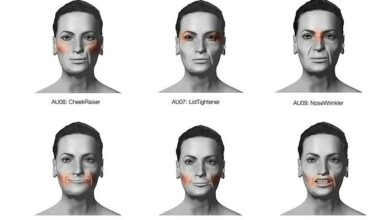DR SCURR: The unfair reason you don’t get the shingles vaccine at 60


I am 67 and have been told I am not eligible for the shingles vaccine. It seems so unfair that I have to wait until I am 70 when those who are ‘turning 65’ are eligible now. The whole campaign seems very confusing. Can you explain?
Eleri Kirk, Falmouth, Cornwall.
Dr. Scurr responds: You are absolutely right to be outraged. Shingles — or herpes zoster — affects one in four people over 50 at some point, and usually causes a painful, blistering rash on one side that can leave scars.
It is most common in people over 70 (in rare cases it can be fatal), but I have also seen it in young children and teenagers.
You don’t get shingles from contact with people. It occurs when the virus you got as a child as chickenpox (varicella-zoster) becomes active again (the virus stays in your body, but can become active again if your immune system is weakened).

The shingles vaccine should be available to everyone over 50, says Dr. Martin Scurr
Unfortunately, the reason you are currently not eligible for this important vaccine (called Shingrix and administered as two injections) is rationing. The fact that the Joint Committee on Vaccination and Immunisation has come up with this bizarre and illogical plan to restrict distribution – presumably for cost reasons – is something that frustrates most GPs.
Currently, the NHS says the vaccine is recommended for all adults ‘turning 65’ – as well as those aged between 70 and 79. Anyone over 50 with a severely weakened immune system is also eligible.
But as you’ve discovered, there’s a strange gap emerging for people who are over 65 but not yet 70.
I think it should be available to everyone over 50. Otherwise it would be unethical.
You have the right to ask your GP to administer the injections privately, but this will cost a minimum of £100. I would strongly urge you to consider this route.
You can then send an invoice (and a copy of the proof of payment) to your Member of Parliament with a request to forward it to the Ministry of Health.
My 16 year old daughter has abdominal migraines and migraine headaches. Both are debilitating: she is constantly tired and her joints ache. She has also had periods of rapid heartbeats. Blood tests have been normal.
Jenny Smith, Rye.
Dr. Scurr responds: Your daughter is in a phase where her body is still developing into adulthood. Her symptoms may reflect different aspects of her health.
For the benefit of other readers, I would first like to explain what abdominal migraine is.
These complaints usually occur in children and are accompanied by severe abdominal pain, often accompanied by nausea.
It is not known why they occur, but they usually disappear after a few hours of rest. Children usually grow out of them, although they often develop migraine headaches later in life.
Most people find that they have a major trigger for their migraines. Stress is often a factor, as are hormonal changes (in women), skipping meals, sleep problems, bright lights, alcohol, heat and exercise.
Stress relief can also be a trigger, which explains why you can get a migraine when you finally go on vacation after hours of hectic preparations.
I encourage your daughter to keep a detailed migraine diary.
This allows them – and you – to see how her headaches and possibly stomach aches relate to her sleep patterns, eating habits, level of exercise and menstrual cycle.
There are useful apps to record these, such as Migraine Buddy or Migraine Monitor (both available online).
The Migraine Trust also provides advice on how to keep a migraine history, providing details that may be useful to a doctor later.
As for her joint pain and heart rate, this may be related to her susceptibility to migraines.
Normal blood tests are one thing, but there is more to assessing health.
Hopefully a two to three month diary will help with decision making.
In my opinion… Coffee doesn’t just make you happier
Many patients fear that drinking coffee will cause high blood pressure and an irregular heartbeat.
But while it’s true that caffeine raises blood pressure for a short period of time after you consume it, a new study — published in the Journal of Hypertension and based on data from 1,400 people over a ten-year period — has shown that regularly drinking coffee does not lead to the development of hypertension.
Another study found that regular coffee drinking does not cause heart rhythm disturbances.
Previous research has shown that coffee drinkers are less likely to develop liver disease. It seems that the transition from a country full of tea drinkers to one where so many people hold coffee in one hand is not a bad thing.
Write to Dr. Scurr
Write to Dr. Scurr at Good Health, Daily Mail, 9 Derry Street, London W8 5HY or email drmartin@dailymail.co.uk — Please provide your contact details. Dr. Scurr cannot provide personal information correspondence. Answers should be be taken in a general context and always consult your own General practitioner in case of any health problems




